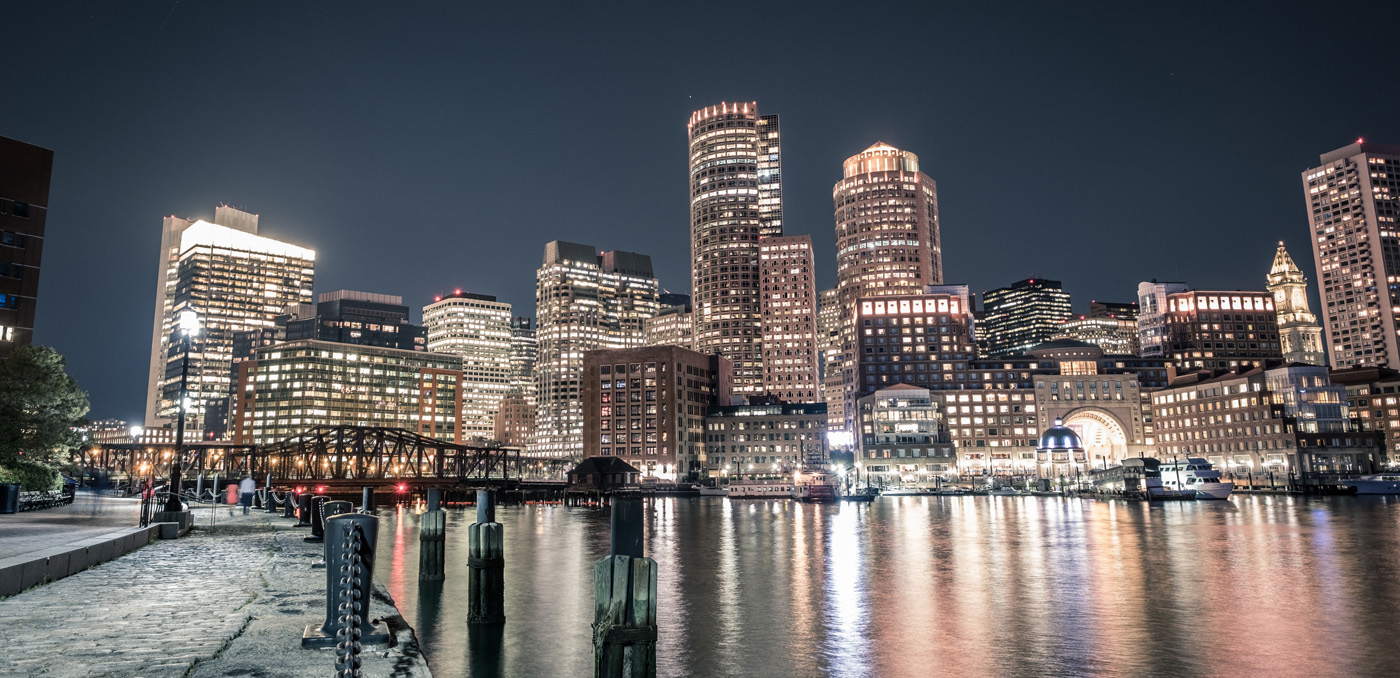As the capital of the Commonwealth of Massachusetts, Boston stands out as a major business destination in the East Coast, and has been a hub for economic opportunity for decades.
The city's mix of physical infrastructure and human capital make it an attractive destination for business and economic activity. In addition, Boston has top-class facilities for business and industry events, including the city's Convention Center and Seaport World Trade Center.
Being the sixth most educated city in the United States, Boston enjoys well-established collaboration links between academia and enterprise, hence it's also known as a hotbed for innovation and entrepreneurship, in particular in areas related to science, advanced manufacturing, and engineering.
As a result, Boston is considered one of the top markets for tech talent in North America, which not only benefits companies in search of exceptional human capital, but also serves as the driving force of the city's thriving startup ecosystem.
The city's economy relies on stable and long-standing sectors, such as education and healthcare, while at the same time seizing new opportunities in technology, tourism, life sciences, and the creative sector. Other notable focus industries include finance, defense, manufacturing, maritime trade, and renewable energy.
The diversity of Boston's economic base is an important factor behind the recent performance of the Massachusetts commercial real estate market. In 2022, every real estate sector experienced notable gains, as detailed in the following section.
Office Space in Boston
Total office inventory in Greater Boston amounts to 185 million square feet. In this area, the office market is going from strength to strength in downtown and suburban Boston, as well as in Cambridge. Key trends include:
- An improvement in office occupancy rates, which tripled in just a year.
- Rising positive absorption figures.
- High sublease rates, even in suburban areas.
- A considerable number of large office tenants relocating to Class A premises.
- An ongoing flight to quality, evident in large differences between Class A and Class B office absorption rates.
Traditionally, finance and insurance were the most important occupiers of city offices, and especially so in the Financial District. Recently, this has changed since the sector has not created new jobs and remote work requirements have led some office-using firms to reconsider their real estate needs.
Vacancy rates in Boston average 10%, but are half that figure in Back Bay and below average in Fenway, Seaport, Midtown and South Station.
Average asking rates remain under $65 / psf, and although there have been no major rent increases in the past five years, concessions are favorable to tenants.
In Cambridge, the demand and supply ratio is even tighter, with average vacancy rates of 4% dropping to barely 1.5% in West Cambridge. Asking rates here are higher than in central Boston at $84 / psf.
Suburban Cambridge offices show great variation, with vacancy rates going from 7% in the inner suburbs to more than 15% along the I-495. Average asking rates for all asset classes are below $30 / psf, but can double that figure in the most desirable inner suburb locations.
The outlook for this office market is mostly positive, given the stream of venture capital funding flowing to the Greater Boston area and growth in office-using jobs.
We must make special mention of lab space, given its weight in the Greater Boston area. Excess office space is being converted to specialized space, mainly for lab purposes, since the local STEM / biotech sectors are absorbing important amounts of square footage.
In the Boston - Cambridge area, there are approximately 40 million square feet of lab space, nearly 30 million of which are Class A.
Although lease volumes declined in comparison to previous years' trends, vacancy rates for this type of space are still at record lows, whereas rents are edging towards record highs.
Specifically, Boston vacancy rates range between 0.3% and 0.9%, and rents in excess of $100 / psf are not uncommon. Further lab space will be made available either through new developments or office-to-lab conversions in Seaport, Fenway, Southend, Brighton, Financial District, and Allston.
Retail Space in Boston
Overall, the Boston retail market can be considered well performing. Total lease volumes continue to be in line with the nine-year average. Similarly, sales volumes currently consist of healthy and above-average figures.
After a slow couple of years, pent-up demand rebounded in 2022, leading to an increase in retail asking rates. Across the entire metro area, average vacancy rates are just below 3% and asking rates are edging closer to $25 / psf (NNN).
With strong demand for prime retail commercial property still present, increasing construction costs, and a dwindling construction pipeline, it's expected that rental rates will continue to rise and supply will be increasingly constrained.
Industrial Space in Boston
Originally a trade center known for processing and manufacturing clothing, textiles, and leather goods, Boston's industrial market has now shifted towards advanced and high-tech manufacturing. In addition, the Port of Boston has an enormous economic impact on the entire region, serving as a major logistics hub in the East Coast. Recent job additions in industrial-focused sectors and growth of e-commerce are other notable trends contributing to the growth of the local industrial real estate market.
Currently, industrial properties in Boston are considered the most reliable commercial real estate asset.
Vacancy rates for industrial space are under 2.5%, reaching an all-time low, and are expected to drop further. There's very limited availability for all types of space, whether it's warehouses, flex space, manufacturing or specialized industrial.
All-time high figures are also present with regards to asking rents, which exceed averages of $13 / psf and reach values above $20 in Urban South and North.

